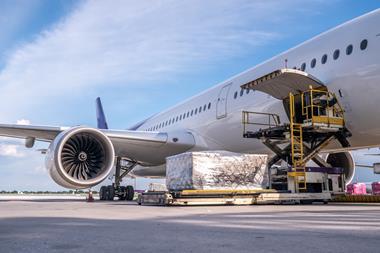The US-based Airforwarders Association (AfA) has provided the White House and Congress with a list of written suggestions “critical to the survival of the air cargo industry” as its members struggle against the economic impact of the coronavirus.
In a letter on behalf of AfA members, executive director Brandon Fried recommends that domestic travel must not be interrupted or suspended and international services must be restored as soon as possible.
It also wants government to “urge airlines to consider scheduled freight-only flight operations to ensure an adequate supply of affordable air cargo for shippers”.
AfA recommends that "Shelter in place" orders by cities and states must not shutter freight forwarders, warehouses and truckers.
Financial relief should include access to low-interest loans, working capital and delayed or deferred government-mandated deadlines.
In the letter, Fried reminds legislators and the White House: "Our members are freight forwarders who play a vital role in the nation's commerce, moving essential shipments such as medical equipment, pharmaceuticals, fresh food and manufactured goods by air and by truck day and night. We utilize the domestic and foreign passenger airlines and trucking systems as our primary means of transportation."
Financial support is critical, says Fried, because forwarders are primarily a pass-through business with finances, receiving payment from shippers and remitting funds to the asset-owning companies who operate planes, trucks and warehouses.
"While some of our members are large, global companies, most are small to medium sized enterprises, independently owned and operated and in need of the financial support that Congress must act upon immediately."
He continues: “Freight forwarders collect money from shippers and remit to underlying service providers such as airlines, express carriers, truckers, warehouses and other companies within the supply chain.
“Their position as an industry which passes through the majority of the funds they receive places them in a position of extraordinary exposure to payments which decrease or are not made."










